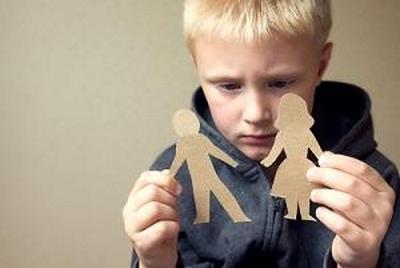Sharing Custody of Children After Your Divorce
 If you are a parent who is considering ending your marriage, you probably have many concerns related to your children. You may worry about how you children will take the news of the divorce or how you and your spouse will share custody of the children after the split. If you and your soon-to-be-ex spouse plan to have joint custody of your children, you will need to learn how to share parental responsibilities in a way that prioritizes your children’s best interests. It can take hard work and humility, but the good news is that effective co-parenting after divorce is possible.
If you are a parent who is considering ending your marriage, you probably have many concerns related to your children. You may worry about how you children will take the news of the divorce or how you and your spouse will share custody of the children after the split. If you and your soon-to-be-ex spouse plan to have joint custody of your children, you will need to learn how to share parental responsibilities in a way that prioritizes your children’s best interests. It can take hard work and humility, but the good news is that effective co-parenting after divorce is possible.
There Is Not Just One “Right” Way to Co-Parent
Just as every marriage is unique, every divorce is unique. Sometimes, a married couple breaks up and there are almost no feelings of bitterness or hostility between the former spouses. Other times, a divorce is wrought with conflict and spite. The way you co-parent will largely be determined by the relationship you have with your children’s other parent. If you and the other parent are able to easily communicate about child-related plans and concerns, you may be able to have a more casual co-parenting arrangement. However, if you and your children’s other parent struggle with productive communication, you may want to make firm parenting plans and decisions in advance.
Divorcing parents in Illinois are required to complete a parenting agreement or parenting plan which addresses how they plan to share parental responsibilities and parenting time. The creation of this agreement can be a valuable opportunity for parents to discuss in detail how they plan to share custody of their children and to put their co-parenting plans in writing.
Parallel Parenting May Work Best When Parents Are Hostile
The goal of any co-parenting arrangement should be to give children the love, attention, and discipline they need to grow to be healthy, happy adults. In some situations, divorced parents have a great deal of unresolved anger toward each other. They may not be able to communicate about parenting concerns without the discussion devolving into accusations and arguments. In situations like these, parallel parenting may be a beneficial method of sharing custody.
In a parallel parenting scenario, parents do not communicate with each other very often and instead have their own life which is completely separate from their child’s other parent. When parents do need to discuss child-related issues or make plans, they can use email or another form of electronic communication to help minimize the chances of conflict. Individuals who plan to parallel parent should make sure that they understand which parenting responsibilities each parent will be accountable for and should put these plans in writing. Although Illinois courts can only enforce certain elements of a parenting arrangement, putting parenting decisions and plans in writing makes both parents more likely to follow them.
Contact a Naperville Child Custody Lawyer
If you are a parent who is planning to divorce, a DuPage County divorce attorney from Pesce Law Group, P.C. can help. To schedule a free, confidential consultation, call us at 630-352-2240 today.
Sources:
https://www.afccnet.org/Portals/0/PDF/AzAFCC%20Coparenting%20Communication%20Guide.pdf
https://www.psychologytoday.com/us/blog/co-parenting-after-divorce/201309/parallel-parenting-after-divorce











 630-352-2240
630-352-2240



